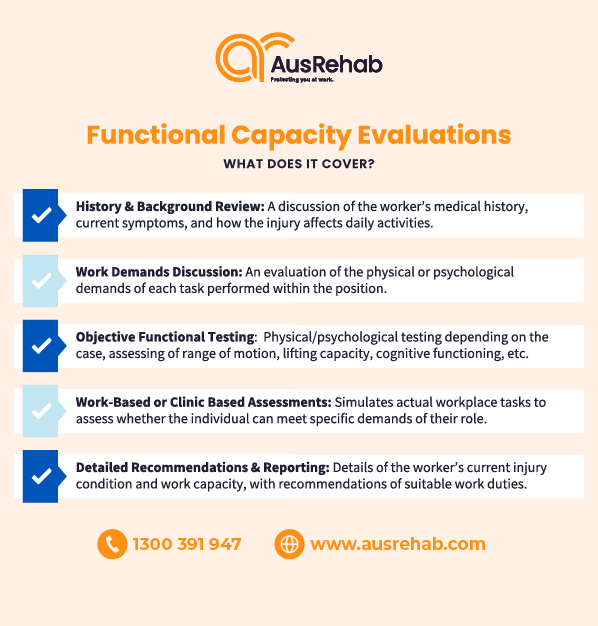Functional Capacity Evaluation (FCE) Services in NSW
At AusRehab, we specialise in delivering accurate and evidence-based Functional Capacity Evaluation (FCE) services across NSW. A functional capacity test provides objective insights into a worker’s ability to meet the demands of their role following a workplace injury. Our expert team conducts each FCE assessment with precision, offering reliable reporting and tailored recommendations that support a safe, sustainable recovery and successful return to work.

